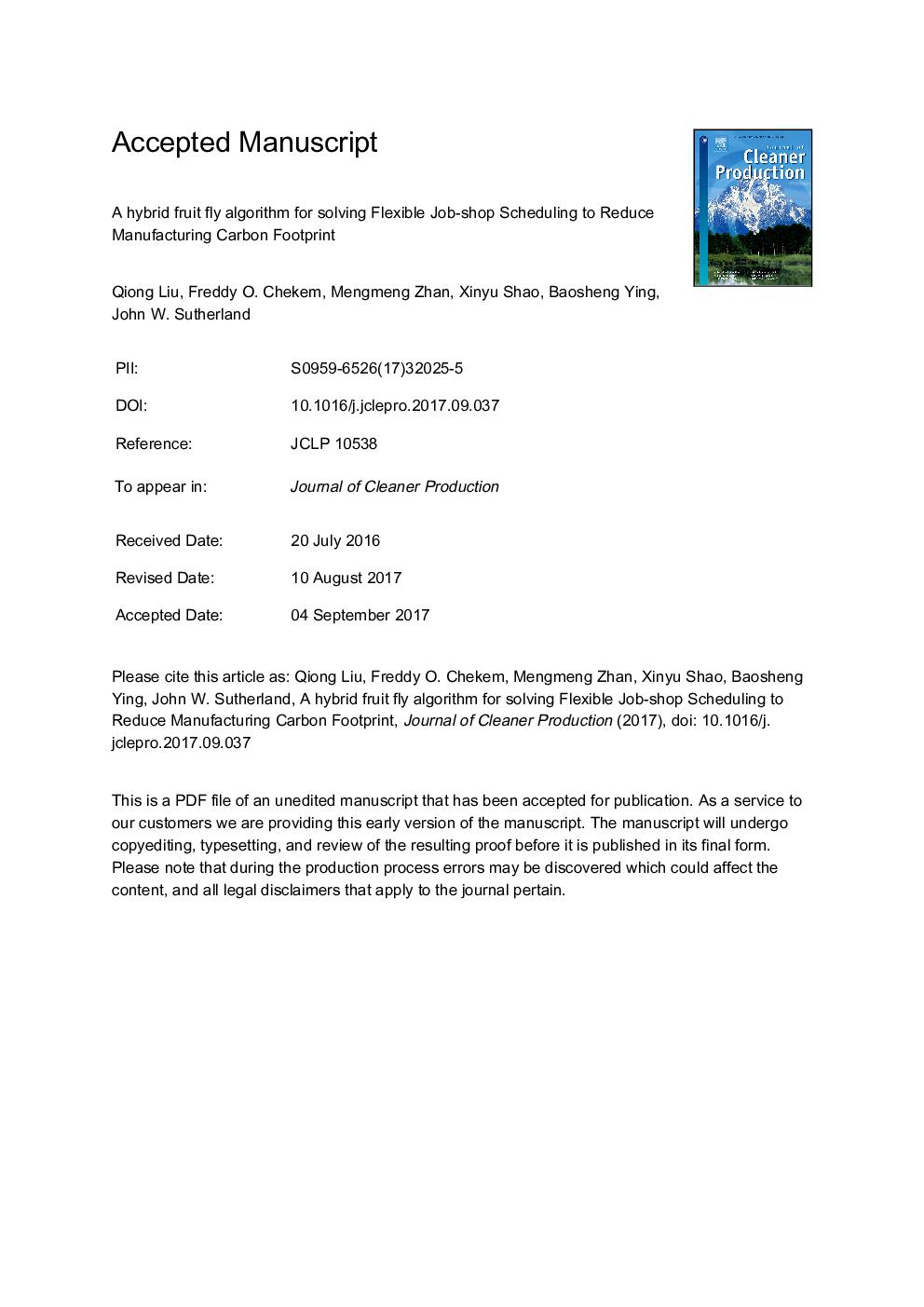| Article ID | Journal | Published Year | Pages | File Type |
|---|---|---|---|---|
| 5479836 | Journal of Cleaner Production | 2017 | 23 Pages |
Abstract
In order to help manufacturing companies to quantify product carbon footprints and provide carbon emission data in a job shop for future life cycle product carbon labelling, a calculating method of product carbon footprint in a job shop is proposed. The carbon emissions in a job shop are allocated to each product based on mapping relations between resources and products consuming the resources. To reduce product carbon footprints in a job shop, a multi-objective optimization model aimed at minimizing carbon footprints of all products and makespan is proposed. In order to solve the proposed model and explore the performance of Fruit Fly Optimization Algorithm (FOA) in multi-objective scheduling optimization problems, a Hybrid Fruit fly optimization algorithm (HFOA) is designed. The proposed model and algorithm are verified by a case study. It is to provide decision makers awareness of carbon footprints for each product in a job shop and the product carbon footprint in job shops can be further used to calculate life cycle product carbon labelling.
Keywords
Related Topics
Physical Sciences and Engineering
Energy
Renewable Energy, Sustainability and the Environment
Authors
Qiong Liu, Mengmeng Zhan, Freddy O. Chekem, Xinyu Shao, Baosheng Ying, John W. Sutherland,
